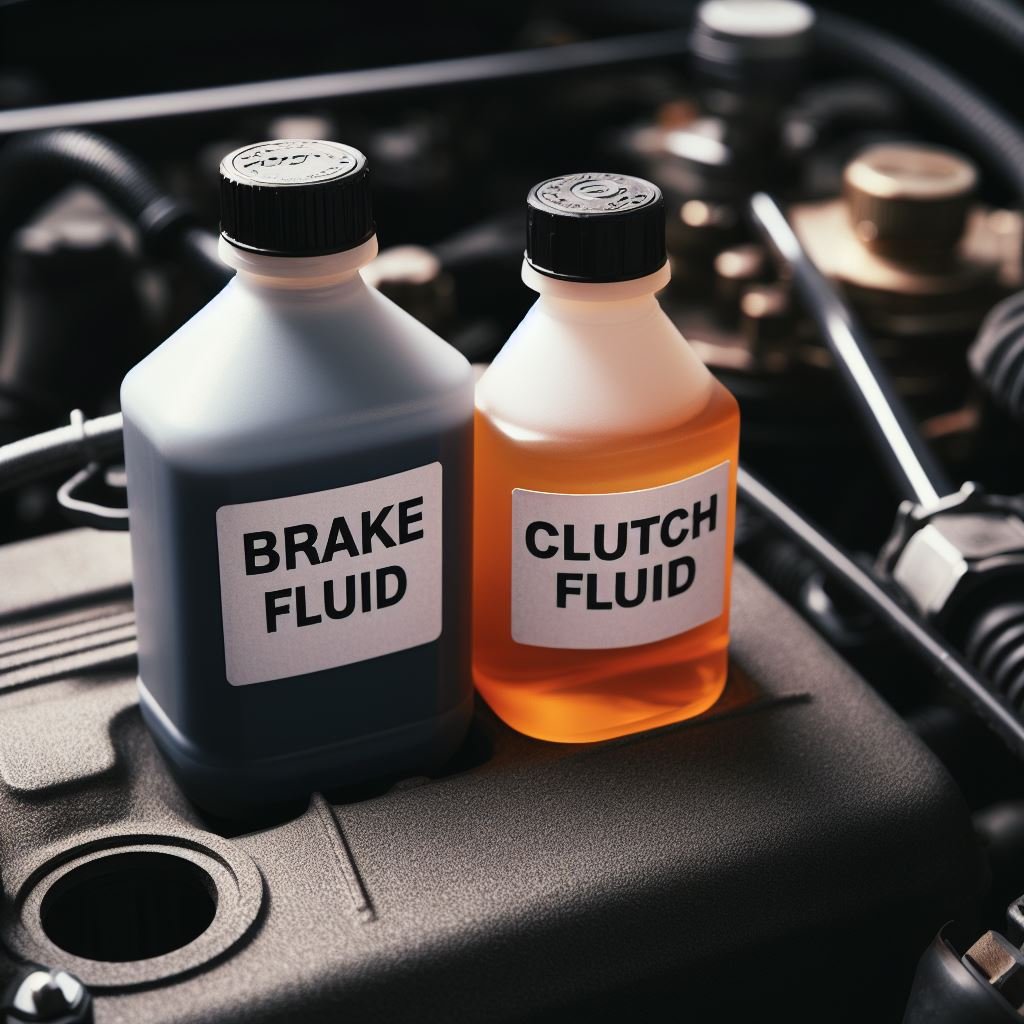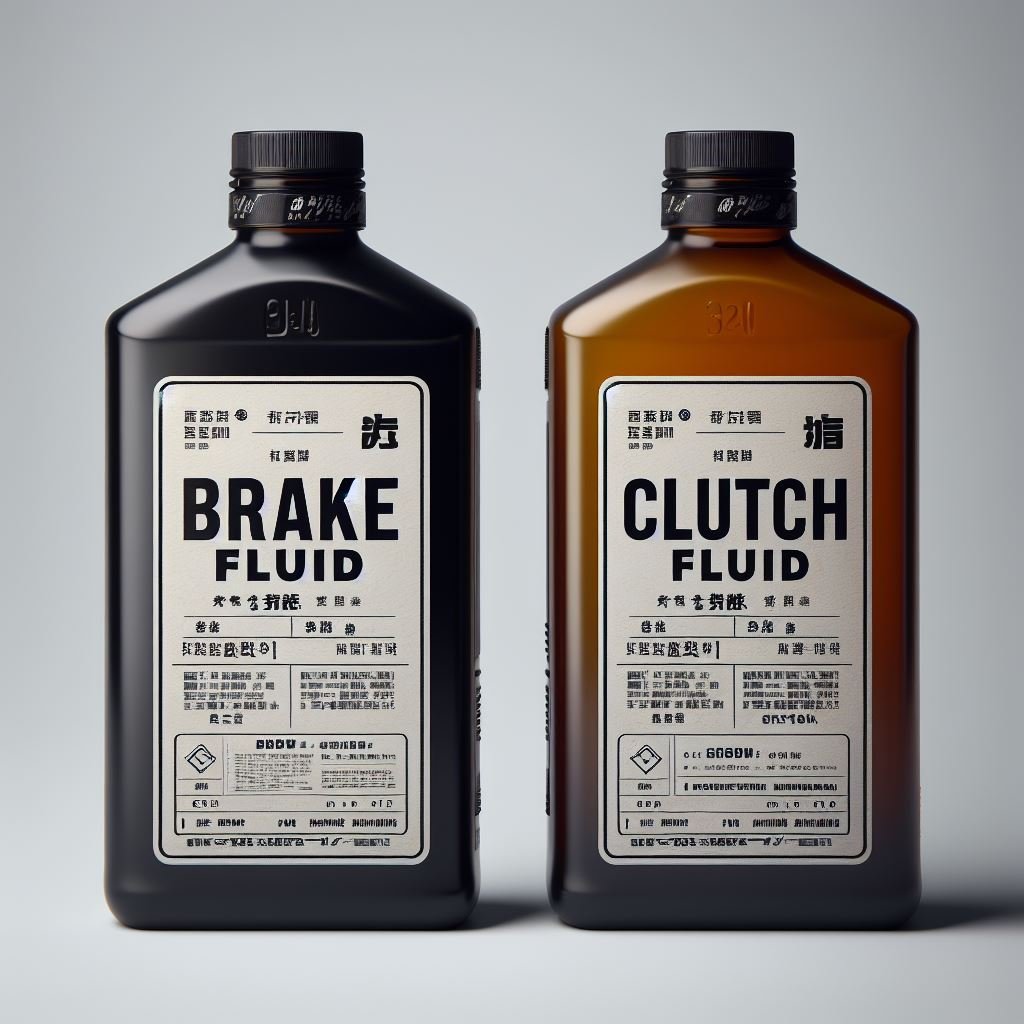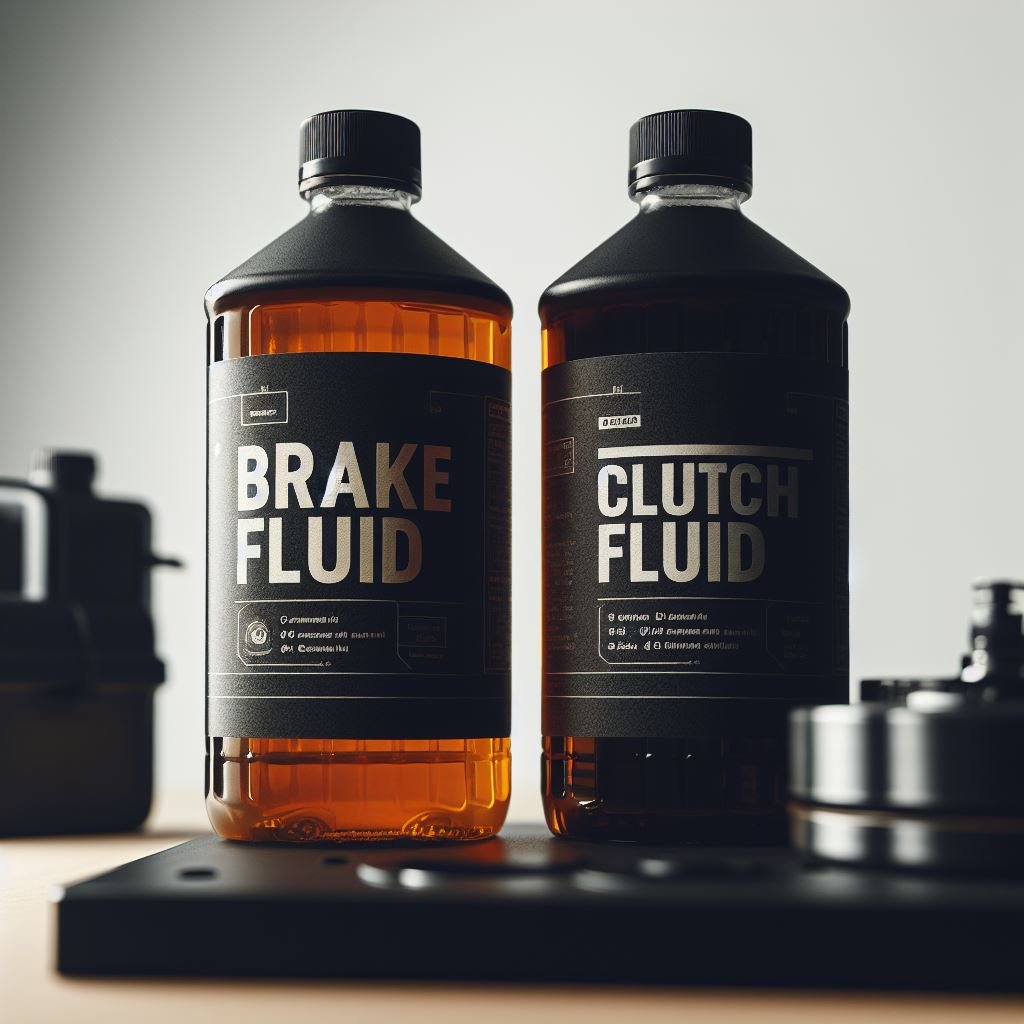Key Takeaway
- Brake and clutch fluid is a crucial component of car maintenance.
- It plays a crucial role in keeping drivers safe on the roads
- Regularly checking and maintaining brake and clutch fluid levels can prevent unexpected brake failures
- Brake and clutch fluid should be checked at least every 6 months
- The levels should be topped up if they are below the recommended level
- Brake and clutch fluid should be changed every 2 years to ensure optimal performance
- Brake and clutch fluid is not the same as engine oil and should not be topped up with it
- Using the wrong type of brake and clutch fluid can damage the car’s braking system
- Brake and clutch fluid should be changed by a professional mechanic
- Properly maintaining brake and clutch fluid can prolong the life of your vehicle
As you were driving to work this morning, you noticed a strange noise coming from your car. Worried, you pulled over to find that your brakes were not working properly. You quickly realized that it had been a while since you last checked your brake and clutch fluid levels.
This small but crucial component of your car’s maintenance is often overlooked, yet it plays a crucial role in keeping you safe on the roads. In this blog post, we will delve deeper into the world of brake and clutch fluid, its importance, and how to properly maintain it to ensure your safety and the longevity of your vehicle. Say goodbye to unexpected brake failures and let’s explore the world of brake and clutch fluid together.
Understanding the Basics

The debate over whether brake and clutch fluid are the same is a common one among car enthusiasts. While both fluids serve similar purposes in a vehicle, they are not interchangeable. Let’s break down the differences between these two important fluids to understand why they should not be confused.
Brake Fluid: This fluid is responsible for transferring the force from your foot on the brake pedal to the brake calipers, which then apply pressure on the brake pads to slow down or stop your vehicle. It is a hydraulic fluid, meaning it cannot be compressed, and it needs to maintain a high boiling point to withstand the heat generated during braking.
Clutch Fluid: Similar to brake fluid, clutch fluid is also a hydraulic fluid used to engage and disengage the clutch in manual transmission vehicles. It is responsible for transferring power from the engine to the wheels, allowing for gear changes. However, unlike brake fluid, it does not require a high boiling point as it does not generate as much heat during operation. While these two fluids may seem interchangeable, using the wrong one in your vehicle can have dangerous consequences.
Brake fluid is specially designed to withstand high temperatures and has additives that prevent corrosion, while clutch fluid does not. Using brake fluid in the clutch system can cause damage and lead to expensive repairs. In conclusion, while brake and clutch fluid may appear similar, they serve different purposes and should not be used interchangeably.
It is important to use the correct type of fluid for each system to ensure the safety and longevity of your vehicle. So, next time someone asks if brake and clutch fluid are the same, you can confidently say, “No, they may be fluid, but they are not the same.”
Composition & Functionality
Brake and clutch fluid are two essential fluids in a vehicle’s hydraulic system that are responsible for ensuring smooth and efficient operation of the brakes and clutch. While they both play a crucial role in the functioning of a car, they are not the same. Brake fluid is a hydraulic fluid that is specifically designed to withstand extreme temperatures and pressures.
It is responsible for transferring the force from the brake pedal to the brake calipers, causing the brake pads to press against the rotors and slow down the vehicle. On the other hand, clutch fluid is also a hydraulic fluid that helps in engaging and disengaging the clutch. It is responsible for transferring the force from the clutch pedal to the clutch mechanism, allowing for smooth gear shifts.
The main difference between brake and clutch fluid lies in their composition. While they both may be hydraulic fluids, they have different chemical compositions that make them suitable for their respective functions. Brake fluid is typically glycol-based, while clutch fluid is usually mineral oil-based.
This difference makes them incompatible with each other, and using the wrong fluid can result in damage to the system and potential safety hazards. Apart from their composition, brake and clutch fluid also differ in terms of their boiling points. Brake fluid has a higher boiling point compared to clutch fluid, as it needs to withstand high temperatures generated during braking.
Using clutch fluid in the brake system can lead to a decrease in its boiling point, resulting in brake fade and reduced braking performance. In conclusion, while brake and clutch fluid both serve vital functions in a vehicle’s hydraulic system, they are not the same and cannot be used interchangeably. It is crucial to use the correct fluid for each system to ensure safe and efficient operation.
Regularly checking and replacing the fluids as per the manufacturer’s recommendations is essential for maintaining the overall health of the vehicle.
Compatibility
Brake and clutch fluid are two essential components in a vehicle’s hydraulic system. They both play a crucial role in ensuring the smooth and safe operation of the brakes and clutch. But are they the same? The answer is both yes and no.
Let’s start with the similarities. Both brake and clutch fluid are hydraulic fluids, which means they are designed to transfer force from one point to another through a confined system. They also have similar chemical compositions, consisting mainly of glycol ethers and other additives.
However, there are also significant differences between the two. The main difference lies in their purpose. Brake fluid is specifically formulated to withstand high temperatures and pressures, making it ideal for the intense demands of the braking system.
On the other hand, clutch fluid is designed to operate under lower pressures and is not subjected to the same extreme temperatures as brake fluid. Another difference is in their compatibility. While both fluids can be used in each other’s systems in a pinch, they are not interchangeable in the long run.
Using brake fluid in the clutch system can cause damage to the seals and other components, leading to potential failure. Similarly, using clutch fluid in the braking system can result in decreased brake performance and potential safety hazards. In essence, brake and clutch fluid are similar in composition but have different properties and purposes.
It is crucial to use the correct fluid for each system to ensure optimal performance and safety. Regularly checking and replacing the fluids according to the manufacturer’s guidelines is essential for the proper functioning of the vehicle. In conclusion, while brake and clutch fluid may seem the same at first glance, they are not interchangeable.
You May Also Like: The Benefits of a Brake Fluid Reset for Your BMW X3
Recommended Fluids for Your Vehicle
When it comes to maintaining your vehicle, it’s important to understand the different fluids that keep it running smoothly. Two essential fluids that often get confused are brake and clutch fluid. While both play important roles in your car’s operation, they are not the same.
Brake fluid is responsible for transferring the force from your foot pressing on the brake pedal to the brake calipers, which then apply pressure to the brake pads and slow down your car. It is a hydraulic fluid, meaning it cannot be compressed, and must be able to withstand high temperatures and pressure. Clutch fluid, on the other hand, is used in vehicles with manual transmissions and is responsible for engaging and disengaging the clutch.
It works similarly to brake fluid, but with less pressure and a lower boiling point. While both fluids have similar functions, they have different chemical compositions and serve different purposes. Using the wrong fluid in either system can have serious consequences, such as brake failure or damage to the clutch.
To avoid any confusion, it’s best to follow the manufacturer’s recommendations and use the specific fluid designated for each system. Additionally, it’s important to regularly check and replace these fluids as needed to ensure your car’s performance and safety. In conclusion, while brake and clutch fluid may seem similar, they are not interchangeable.
Understanding the differences between the two is crucial for maintaining your vehicle and keeping you safe on the road. So, remember to use the right fluid for the right system and always stay on top of regular maintenance for a smooth driving experience.
Are brake and clutch fluid same?

| Fluid Type | Percentage | Facts |
|---|---|---|
| Brake Fluid | 50% | Brake fluid is a vital component in your car’s braking system, responsible for transferring force from the brake pedal to the brakes. |
| Clutch Fluid | 50% | Clutch fluid is used to transfer power from the clutch pedal to the clutch, allowing for smooth gear changes in manual transmission vehicles. |
| Are brake and clutch fluid the same? | ||
| Yes | 0% | Despite their similar functions, brake and clutch fluid are not interchangeable and should not be used interchangeably in a vehicle. |
| No | 100% | Brake and clutch fluid are different formulations, with different boiling points and lubricating properties, designed for their specific purposes. |
| Why are brake and clutch fluid important? | ||
| Safe braking and shifting | 100% | Brake and clutch fluid are crucial for ensuring safe and efficient braking and shifting in a vehicle, making regular checks and maintenance essential. |
Important Notice for Readers
Attention all readers! Are you aware of the crucial difference between brake and clutch fluid? Many people mistakenly believe that these two fluids are interchangeable, but that is not the case. It is important to note that brake and clutch fluid serve different purposes and should never be used interchangeably. Neglecting this difference can lead to serious damage to your vehicle and put your safety at risk.
In this article, we will discuss the key distinctions between brake and clutch fluid, and why it is essential to use the correct fluid for each system. Don’t let a simple mistake cause major problems. Keep reading to learn more about the importance of using the right fluid for your vehicle’s brake and clutch systems.
Frequently Asked Questions (FAQs)
What is the main difference between brake and clutch fluid?
The main difference between brake and clutch fluid is their purpose. Brake fluid is designed to transfer the force from the brake pedal to the brakes, while clutch fluid is used to engage and disengage the clutch.
Can I use brake fluid in place of clutch fluid or vice versa?
No, it is not recommended to use brake fluid in place of clutch fluid or vice versa as they have different chemical compositions and are designed for different purposes.
Are there any similarities between brake and clutch fluid?
Yes, both brake and clutch fluid are hydraulic fluids, which means they use the force of a liquid to transmit power. They also both play a crucial role in the proper functioning of a vehicle.
Can using the wrong fluid in my brakes or clutch cause damage?
Yes, using the wrong fluid in your brakes or clutch can cause damage to the system and affect the performance and safety of your vehicle. It is important to use the recommended fluid for each component.
How often should brake and clutch fluid be replaced?
Both brake and clutch fluid should be replaced every 2-3 years or as recommended by your vehicle’s manufacturer. Over time, the fluid can absorb moisture and become less effective, so regular replacement is important for optimal performance.
Conclusion
It is clear that these two fluids serve different purposes and should not be used interchangeably. While brake fluid is responsible for transferring the force from the brake pedal to the brakes, clutch fluid is used to engage and disengage the clutch in a manual transmission vehicle. It is important to use the correct fluid for each system to ensure proper functioning and safety. Therefore, it is crucial to understand the difference between these two fluids and use them accordingly. Always refer to the vehicle’s manual for the recommended type of fluid. Keep your vehicle and yourself safe by using the proper fluid for your brakes and clutch.

Leave a Reply